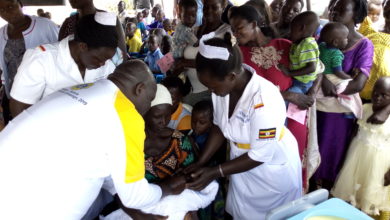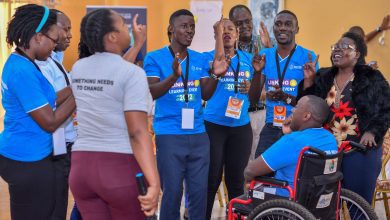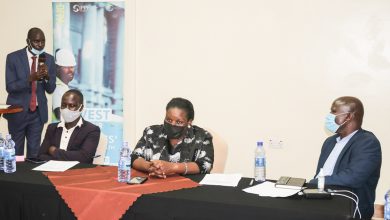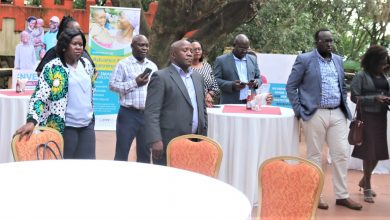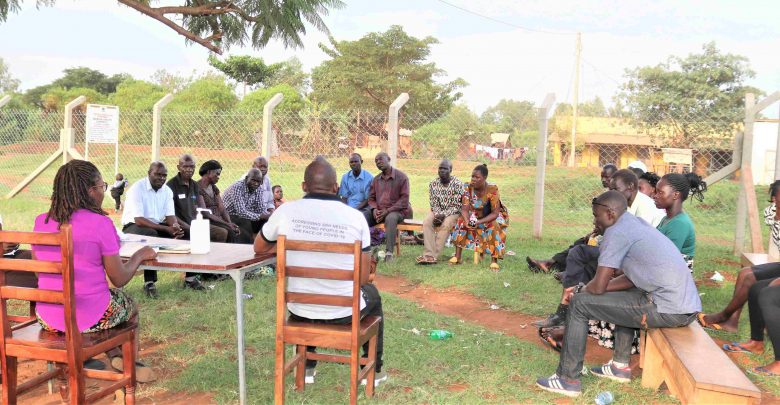
Breaking NewsHealth
Reproductive Health Uganda Ensuring that Every Pregnancy is Wanted in Uganda
Dr. Betty Isiko, the Breaking barriers to access family planning Coordinator says 99 VHTs, and 64 midwives were trained at 33 health facilities in Tororo, Butaleja, and Busia districts. Since April 2021, she claims that 15 vasectomies have been performed, 291 women have received permanent irreversible methods, and 4927 and 9821 women recieved five-year implants.
Geoffrey Ochwo
KAMPALA, Uganda – After a 260-kilometer drive past the expanding suburbs of Kampala that give way to forests, the River Nile, and hills, in a small double cabin Toyota pickup carrying a group of Reproductive Health Uganda (RHU) staff and a photographer packed at Tororo RHU branch office in Tororo district near the western border of Kenya.
Its mission: is to highlight the ways family planning is making a difference in creating an environment where every pregnancy is wanted, every childbirth safe and every young person’s potential is fulfilled.
Starting at Osukuru Health Centre III, on the outskirts of the town of Tororo, RHU media Advocacy and Documentation Coordinator Aldon Walukamba interviewed pregnant women at a waiting government facility, but also collaborated with RHU and its partners to save expectant mothers from the hardship of the long journeys during the final stages of pregnancy. They also met with mothers who had just delivered at the maternity ward. Men and women who opted to use permanent family planning methods at a community dialogue.
Vincent Abwot, LCI Abonget ward in Osukuru sub-county is one of the long term family planning champions in Tororo district who believes every pregnancy in the sub-county must be planned.
“Men should take on vasectomy if they have at least three children, or use other methods to space and plan for their children,” Abwot said.
Other members including women demanded more information about family planning and counseling for couples in the Osukuru sub-county.
The next stop was at the Kwapa health Centre III, where tens of women, and men, were lining up to receive family planning counseling and services, and to undergo testing for HIV and cervical cancer, and other sexually transmitted infections. Those women lucky enough to have their partners with them moved faster a small incentive to encourage male involvement in women’s reproductive health issues. The health Centre III is run by the government and its partners who train a voluntary health team (VHT), and community members to address the sexual and reproductive health needs of the community.
David Ochwei, leads the VHT in Kwapa. He says in the last year, three men and close to 60 women have embraced permanent family planning methods after accumulating enough number of children.
Valentine Onyapidi, a resident of Chengen II cell embraced vasectomy earlier in 2022. He says the risk of giving birth to unplanned children is no more.
“I function normally as a man and together with my wife, we have a happy marriage,” Onyapidi said. His wife Stella, also embraced sterilization after having her eighth child last year.
At an RHU health located in the heart of Tororo municipality, vulnerable persons are able to receive a wide range of reproductive health services, including family planning counseling and supplies, and testing for HIV, other ailments, and breast and cervical cancer. The clinic also offers vasectomies.
Dr. Betty Isiko, the Breaking barriers to access family planning project officer says 99 VHTs, and 64 midwives were trained at 33 health facilities in Tororo, Butaleja, and Busia districts.
Since April 2021, she claims that 15 vasectomies have been performed, 291 women have embraced long term permanent family planning, and 4927 and 9821 received five-year implants for women.
The team then drove to the RHU-supported Nampologoma Health Centre II, accessed through a long, dusty road winding up and down the Butaleja district’s picturesque terrains that are famous for their maize, rice, and cassava plantations. Most of the Nampologoma village women, in their colorful dresses, were gathered on the center’s lawn, surrounded by green mango trees. They were waiting there for the health experts, VHT, and local leaders to dialogue about issues concerning permanent family planning methods.
A trained member of the community’s voluntary health team and medical experts from RHU would discuss with the women and their partners the issues of vasectomy and bi-tubal litigation. There, another volunteer would register the members and offer guidance and counseling. The health center II in Nampologoma parish also offers a variety of family planning methods to the community, such as contraception implants and vasectomy performed by RHU doctors.
Dr. Simon Lugoloobi, RHU Manager of Technical Services says this is a typical routine that the RHU and its members carry out to ensure communities space their children and have all pregnancies accounted for with proper planning.


